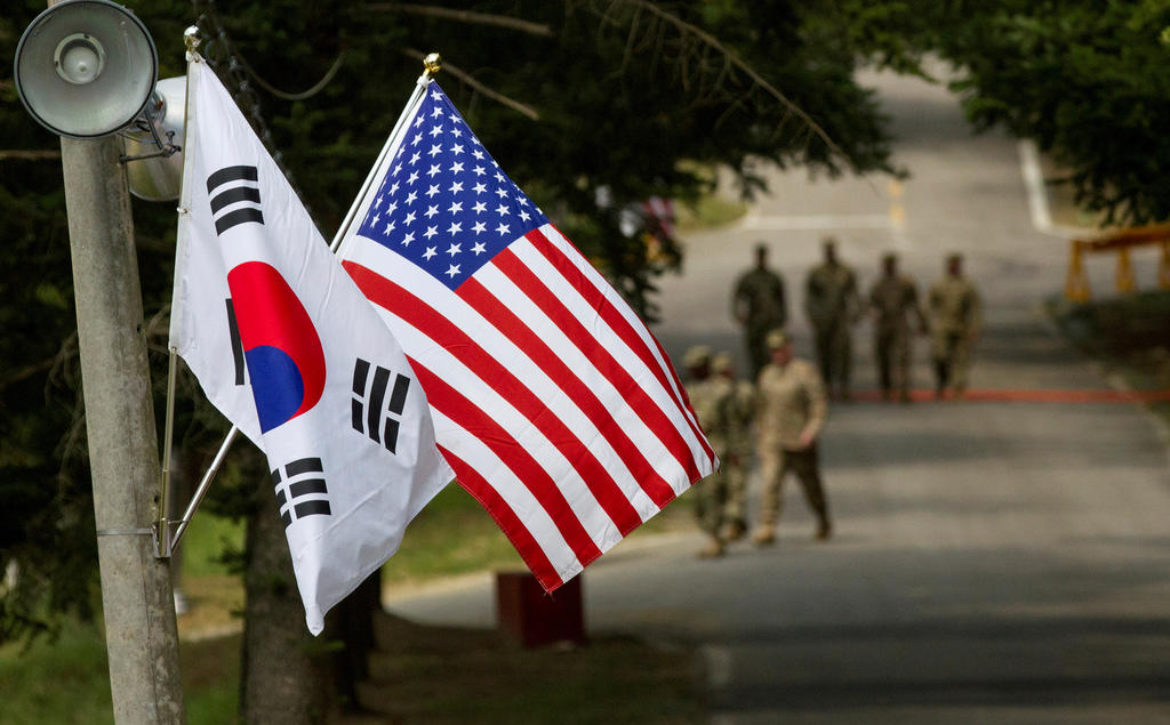
Seoul says no decision on U.S. drills, but exercises should not create North Korea tension
SEOUL – South Korea said on Monday no decision has yet been made on its joint military exercises with the United States but they should not create tension, after North Korea warned the South against holding the exercises amid signs of a thaw in relations.
South Korea and the United States regularly stage military exercises, mainly in the spring and summer, which North Korea routinely denounces as rehearsals for war.
Kim Yo Jong, sister of North Korean leader Kim Jong Un and a senior official of the ruling Workers’ Party, warned Seoul on Sunday that holding the drills would undercut efforts to rebuild relations.
Her warning came days after the two Koreas restored hotlines Pyongyang severed a year ago and South Korean officials said Kim and South Korean President Moon Jae-in were seeking to repair strained ties and resume summits.
South Korea’s defence ministry said Seoul and Washington were in talks over the drills but no decision had yet been made.
“We have nothing to comment on her statement, but regarding the exercises, the timing and method have not been finalised,” ministry spokesman Boo Seung-chan told a briefing.
He said the allies would make a decision after considering COVID-19, joint defence posture, planned transfer of wartime operational control, and the issue of “supporting diplomatic efforts for establishing lasting peace on the Korean peninsula.”
Lee Jong-joo, spokeswoman of Seoul’s Unification Ministry, which handles inter-Korean affairs, said the exercises should not be a “source of military tension in any case”, without elaborating.
The Pentagon also declined to comment on Kim Yo Jong’s statement. It said it did not comment on “planned or conducted training readiness” but “combined training events” were a bilateral decision “and any decisions will be a mutual agreement.”
A U.S. State Department spokesperson reiterated that Washington “supports inter-Korean dialogue and engagement, and welcomes the recent developments related to inter-Korean communication,” adding that “diplomacy and dialogue are essential to achieving the complete denuclearisation of the Korean Peninsula.”
At the same time, U.S. State Department spokesman Ned Price told a news briefing Secretary of State Antony Blinken planned to call on Southeast Asian counterparts in a meeting this week to fully implement sanctions on North Korea.
U.S.-South Korea exercises have been scaled back in recent years to facilitate talks between North Korea and the administration of former U.S. President Donald Trump aimed at dismantling Pyongyang’s nuclear and missile programmes in return for U.S. sanctions relief.
But the negotiations stalled following a failed second Trump-Kim summit in 2019.
The pandemic has affected the drills, with the allies focusing on computerised simulations and minimising live field training without mobilising U.S.-based troops.
A high-level Unification Ministry official said on Friday the exercises should be postponed to help restart talks, but Lee declined to comment when asked if the ministry plans to make a formal recommendation.
Lee said Seoul last week proposed setting up a video conference system to expedite inter-Korean dialogue and approved plans by two civilian relief groups to send humanitarian aid to North Korea. REUTERS
Read More


